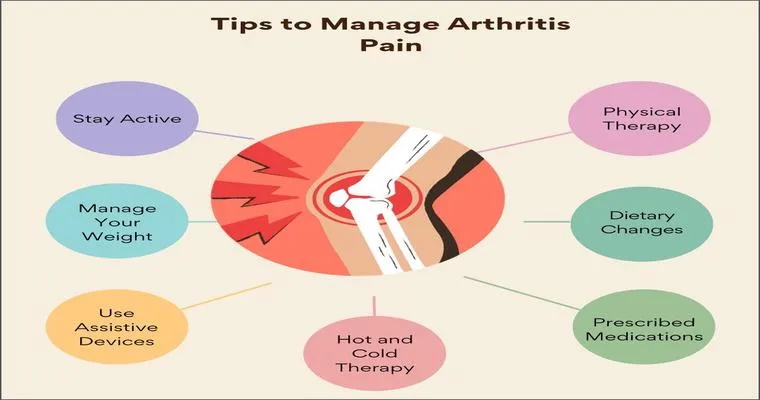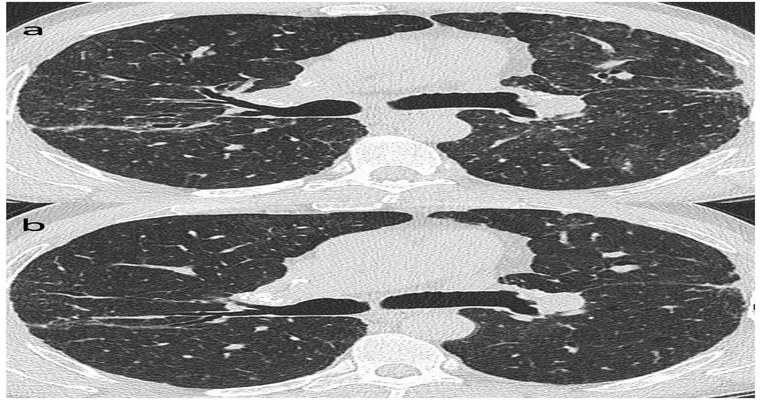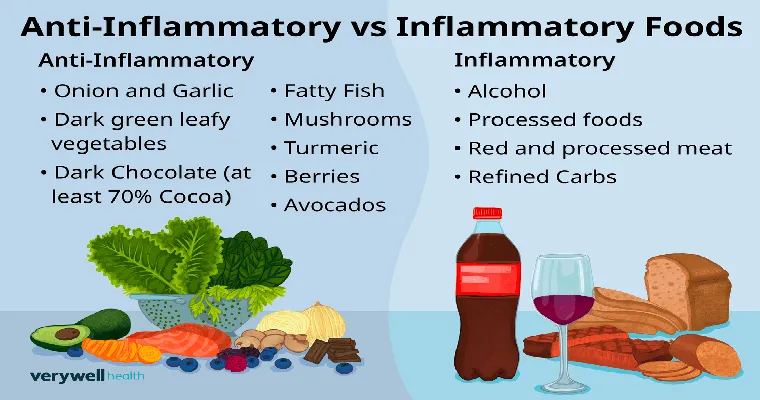Arthritis is a common condition that affects millions of people worldwide, characterized by joint pain and inflammation. To manage this debilitating disease effectively, adopting the right "diet" and "exercise" regimen can significantly help in minimizing "inflammation". This article provides key tips on how to use nutritional choices and physical activity to alleviate the discomfort associated with arthritis.
Understanding Inflammation and Arthritis
Inflammation is a natural response of the body to injury or infection, but in the case of arthritis, it can become chronic, leading to severe pain and joint damage. The two most common types of arthritis, osteoarthritis and rheumatoid arthritis, can be influenced by lifestyle choices. Thus, it is crucial to understand how certain foods and exercises can either exacerbate or alleviate symptoms.
Anti-Inflammatory Diet
Incorporating an "anti-inflammatory diet" can play a vital role in managing arthritis. Here are some dietary tips to consider:
1. "Embrace Omega-3 Fatty Acids": Foods rich in omega-3 fatty acids, such as salmon, walnuts, and flaxseeds, are known for their anti-inflammatory properties. Regular consumption can help reduce joint stiffness and pain.
2. "Fruits and Vegetables": Brightly colored fruits and vegetables like berries, spinach, and kale are high in antioxidants, which fight inflammation. Aim for a variety of colors on your plate to maximize nutrient intake.
3. "Whole Grains": Whole grains like brown rice, quinoa, and whole wheat bread are better choices than refined grains. They are high in fiber and can help reduce inflammatory markers in the body.
4. "Limit Processed Foods": Processed foods often contain high levels of sugars and unhealthy fats, which can promote inflammation. Reducing the intake of fast foods, sugary snacks, and artificial additives is essential for managing arthritis symptoms.
5. "Stay Hydrated": Proper hydration is crucial for joint health. Drinking plenty of water can help maintain the lubrication of joints and reduce pain.
Importance of Exercise
Regular "exercise" is equally important in managing arthritis. It not only helps in maintaining a healthy weight but also strengthens the muscles around the joints, providing better support. Here are some exercise tips:
1. "Low-Impact Activities": Engage in low-impact exercises such as swimming, cycling, or walking, which can improve cardiovascular health without putting excessive stress on the joints.
2. "Strength Training": Incorporate strength training exercises to build muscle, which can help support and stabilize the joints. Use resistance bands or light weights, focusing on proper form to prevent injury.
3. "Flexibility Exercises": Stretching and flexibility exercises, such as yoga or tai chi, can enhance joint mobility and reduce stiffness. These practices also promote relaxation and stress relief, which can be beneficial for overall well-being.
4. "Consistency is Key": Aim for at least 150 minutes of moderate-intensity exercise each week, spread out over several days. Consistency is crucial in reaping the benefits of physical activity.
Conclusion
Managing arthritis requires a multifaceted approach that includes a "healthy diet" and regular "exercise". By focusing on anti-inflammatory foods and engaging in physical activities that promote joint health, individuals can significantly minimize "inflammation" and improve their quality of life. Remember to consult with a healthcare professional before making any significant changes to your diet or exercise routine, especially if you have existing health conditions. With the right strategies, living well with arthritis is entirely achievable.





